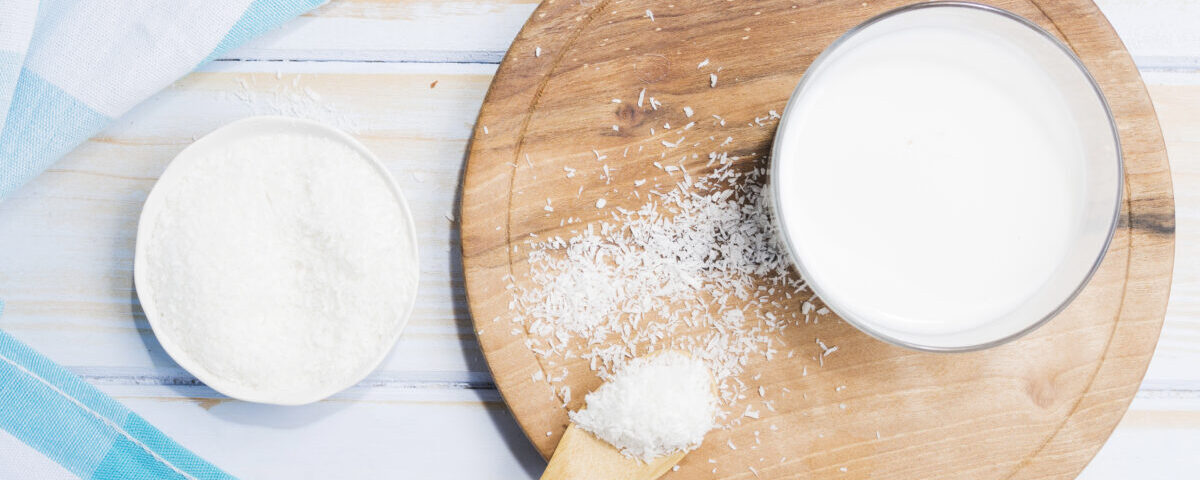
Thickening Powders: Secret Ingredients That Keep Foods Fresh.
October 15, 2020
The versatility of milk powder: From cooking to beauty
April 20, 2024Milk powder, also known as powdered milk, is a staple in households and food industries worldwide. This product is prepared by evaporating fresh milk, bringing forth values like freshness, versatility, and long shelf life. This article delves into the uses, benefits, and types of milk powder, examining its role in modern diets and food production.
Understanding Milk Powder:
Milk powder is essentially fresh milk transformed into a dry, shelf-stable product through evaporation to remove moisture. This process involves heating the milk to remove most of its water content and converting it into fine powder form. It retains the nutritional value of fresh milk, including proteins, carbohydrates, fats, vitamins, and minerals, albeit in a concentrated form.
Uses in Culinary Applications:
One of the primary uses of milk powder is as a suitable substitute for liquid milk in cooking and baking. Its long shelf life and reduced volume make it a convenient and transportable pantry item, especially in areas where fresh milk is not readily available or practical.
In cooking and baking, milk powder is utilized as a valuable ingredient to add moisture, structure, and flavor to various culinary recipes, including bread, cakes, cookies, and pastries. It contributes to a desirable texture and tends to caramelize and brown during baking.
In savory dishes, milk powder can be mixed with water to substitute for fresh milk in sauces, soups, casseroles, and creamy dishes. Such versatile applications have made it an essential component in both professional kitchens and household cooking.
Nutritional Benefits:
Milk powder is a rich source of essential nutrients such as proteins, calcium, vitamins, and minerals. Particularly, protein is a key component of milk powder, making it a valuable dietary supplement for individuals looking to increase their protein intake. Whey and casein proteins, naturally found in milk, are preserved in milk powder and provide a complete source of amino acids necessary for muscle growth, repair, and overall health.
Additionally, milk powder is fortified with vitamins such as vitamin D and vitamin A, enhancing its nutritional profile and aiding in bone health, immune function, and vision. Calcium, an abundant and immediate mineral in milk powder, supports bone strength and plays a role in various physiological processes.
Types of Milk Powder:
Several types of milk powder are available in the market, each with its own characteristics and specific uses:
Low-fat milk powder: Low-fat milk powder is made from skim milk or milk with reduced fat content and contains minimal amounts of fat. This powder is typically used in cooking applications that require a lighter texture without compromising taste or nutritional value.
Full-fat milk powder: Full-fat milk powder retains the natural fats present in milk, offering a richer taste and creamier texture compared to low-fat milk powder. It is primarily used in culinary recipes that prioritize flavor and texture, such as desserts, sauces, and beverages.
Instant milk powder: Instant milk powder is a type of milk powder that quickly and easily dissolves in water without the need for cooking or further mixing. It is convenient for instant beverages like milkshakes, smoothies, and coffee, providing convenience without sacrificing quality or taste.
Fortified milk powder: Fortified milk powder is enhanced with additional vitamins and minerals to improve its nutritional content. Common fortifications include vitamin D, vitamin A, calcium, and iron, catering to specific nutritional needs and consumer preferences.
Conclusion:
In summary, milk powder is a versatile and nutrient-rich substance with extensive uses in culinary, nutritional, and food production processes. Its long shelf life, ease of use, and nutritional benefits make it a fundamental resource for consumers, chefs, and food manufacturers alike. Packaged as a dietary supplement or as a primary ingredient in gourmet and homemade dishes, milk powder contributes to daily diets and culinary experiences worldwide.



